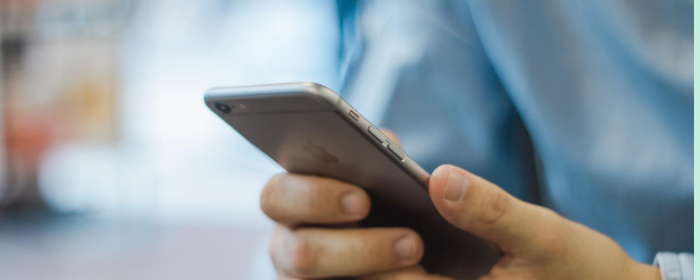
Are you following-up with recruiters and hiring managers after your interview the right way or are you stalking them without realizing?
Are you being told that you will hear back from them once they have feedback, but no one ever gets back to you?
After your interview, you normally feel eager to get feedback and inquire about whether you made it to the next step of the recruitment process.
How and when you follow-up, depends largely on the stage of the interview process you are at, and sometimes on the preference of the interviewer. Some interviewers state clearly how and when they expect you to follow up with them. Listen carefully to this part if discussed during the interview. If the interviewer doesn't bring this up, it is totally appropriate to ask:
- When should I expect to hear from you?
- Is it ok to call you or email you to ask about what is next?
What you need to know before writing your message
Whether you had a phone or face-to-face interview, or whether it is your first, second or last interview, you are probably eager to know if you have made it to the next step and what is next.
Here is what you need to know before writing your message:
- The follow-up message should help you stand out and not leave a bad impression. It either makes it or breaks it! Your ultimate goal is to get the job, but even if you don’t it is important you:
- Buid a good relatilonship with the interviewer
- Give a good impression about you
- Do I call or send a message?
The best option is to send a written message so that it’s in the interviewer’s records, unless he/she has specified during the interview that they prefer that you call.
- When to send the e-mail?
- I recommend that you follow up the same day after a screening or a first interview and no later than 24 hours after it.
- When your interviewer mentions a certain date for you, follow up close to that date
- In general, avoid sending emails on the last day of the working week, weekends or holidays. Send it during the day on the first day of the week or anytime during the week, during working hours, preferably in the morning. We tend to miss or be late replying to messages that come outside working hours.
- Friendly or formal tone?
It depends on the interviewer and how the interview went. Use your judgment and let your email message reflect your communication skills.
- Write your message while keeping in mind what are trying to achieve from it. Generally, the email message content should:
- Thank the interviewer for considering you and for their time.
- Reconfirm interest in the company and role.
- Add any relevant information you might have forgotten to talk about during the interview.
- Ask for feedback
- Inquire about next steps and timeframe
- Make sure it is wellwritten and doesn’t have any language or grammar mistakes. Your correspondence says a lot about you, especially if you are applying for a role that requires strong writing skills.
- It’s a great idea to add the person to your LinkedIn network but it’s a bad idea to stalk him or her! Also Follow the company page on LinkedIn.
We prepared for you a List of Don'ts of interview follow-up etiquette. Have you been doing any of this?
- Do not send a follow-up message template as it.
- Do not use impolite or aggressive language even if the interviewer didn’t show professionalism or sounded aggressive. You don’t want any negative comments about you next to your name in the company’s Applicant Tracking System.
- Do not show desperation, no matter how desperate you might be.
- Do not stack the interviewer by sending many messages. You send one email and wait. If you don’t hear back, you can send another in a week. Remember that you want to build a good relationship with the interviewer now and for the long term!
- Do not send an email and then a LinkedIn message telling the person you emailed them. They already know you did!
Ready to have a look at our sample follow-up email template?
Subject: Thank you and follow-up
Dear X,
Thank you for taking the time to interview me for the IT Director role this morning and for sharing with me exciting information about your growth plans in the region and investments you have made so far in developing the IT infrastructure.
I enjoyed our conversation and would like to reconfirm my interest in joining Academic Jobs Middle East. I believe that I can bring great value and opportunities to your organization, while acquiring new skills and experiences that contribute to my own professional growth and success.
While we were talking about how in my previous role, we selected and implemented Workday as a cloud-based enterprise software, I was trying to remember who the client was but couldn’t. When I left your office, I remembered that it was Netflix. If you need any additional information about Workday, I will be happy to provide that.
Again, I would like to thank you for your interest and time and will be looking forward to receiving your feedback and information about next steps.
Thank you and best,
Jihane Najjar
Author: Jihane Najjar, Leadership and Job Search Coach